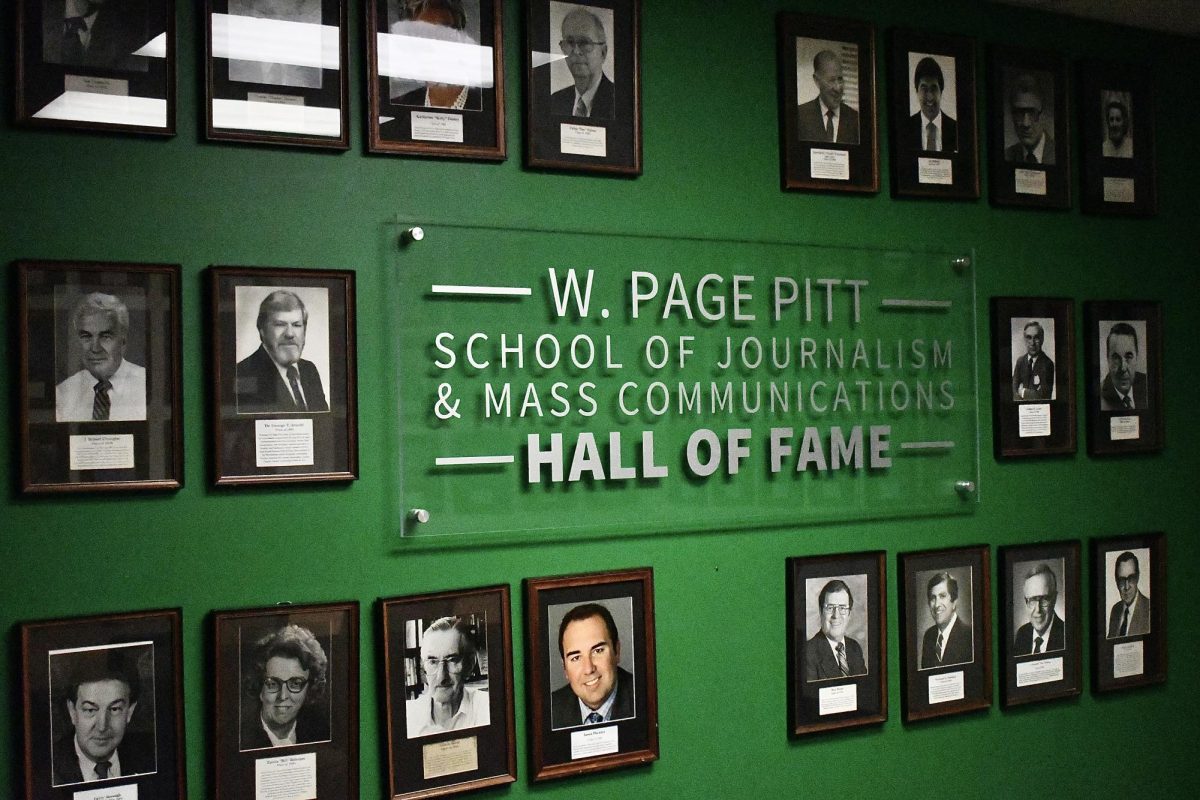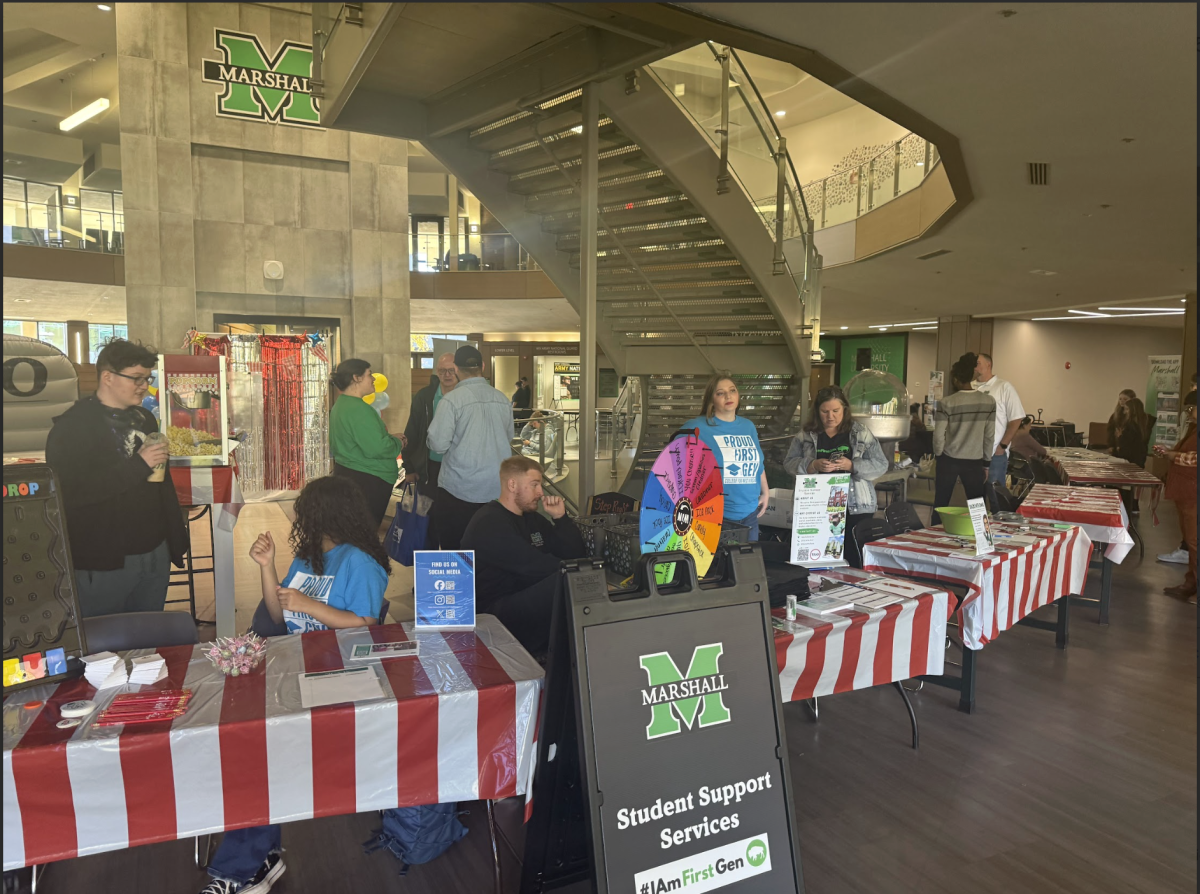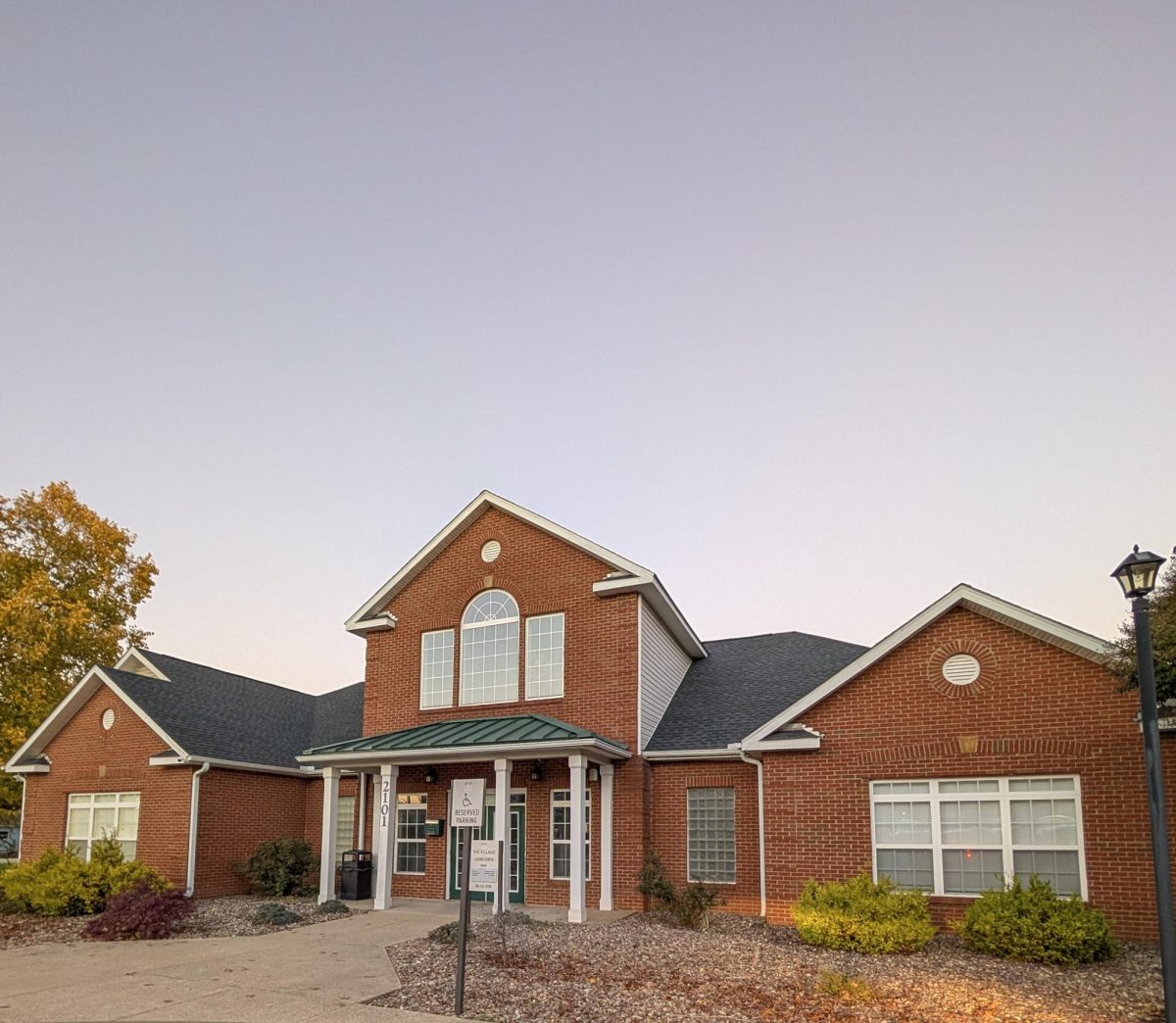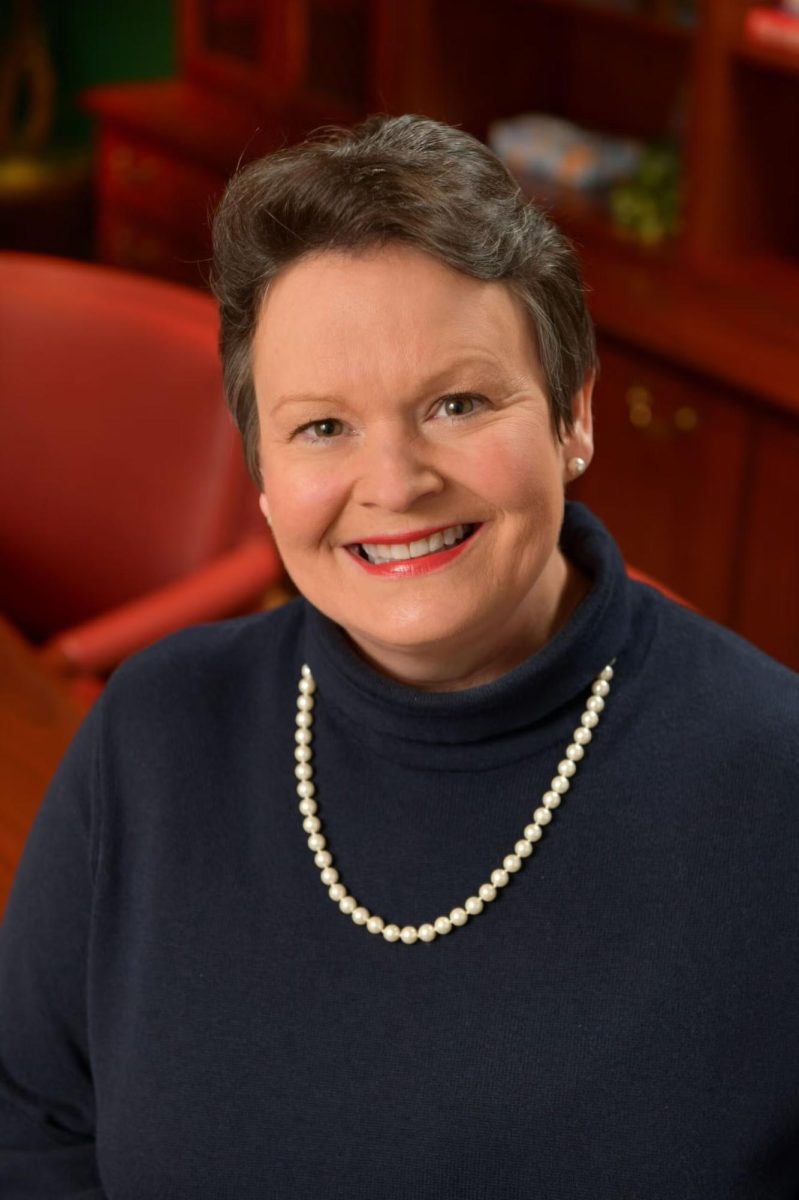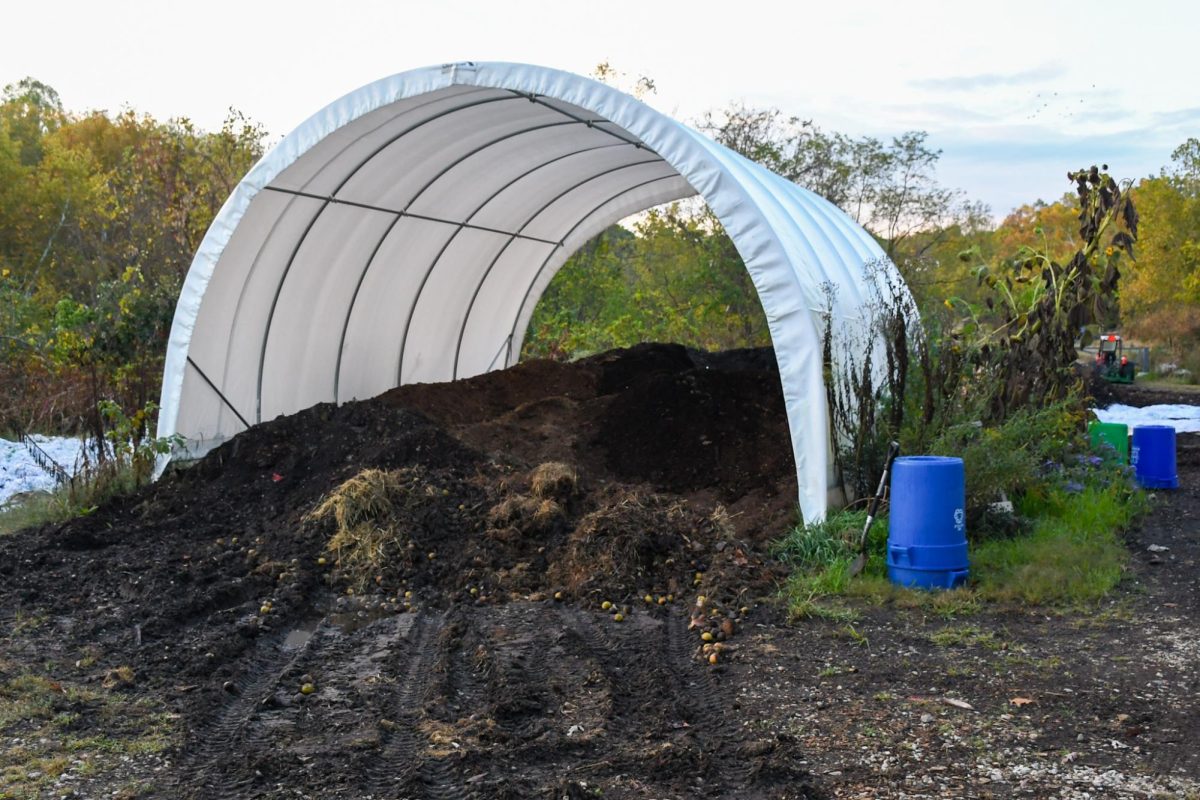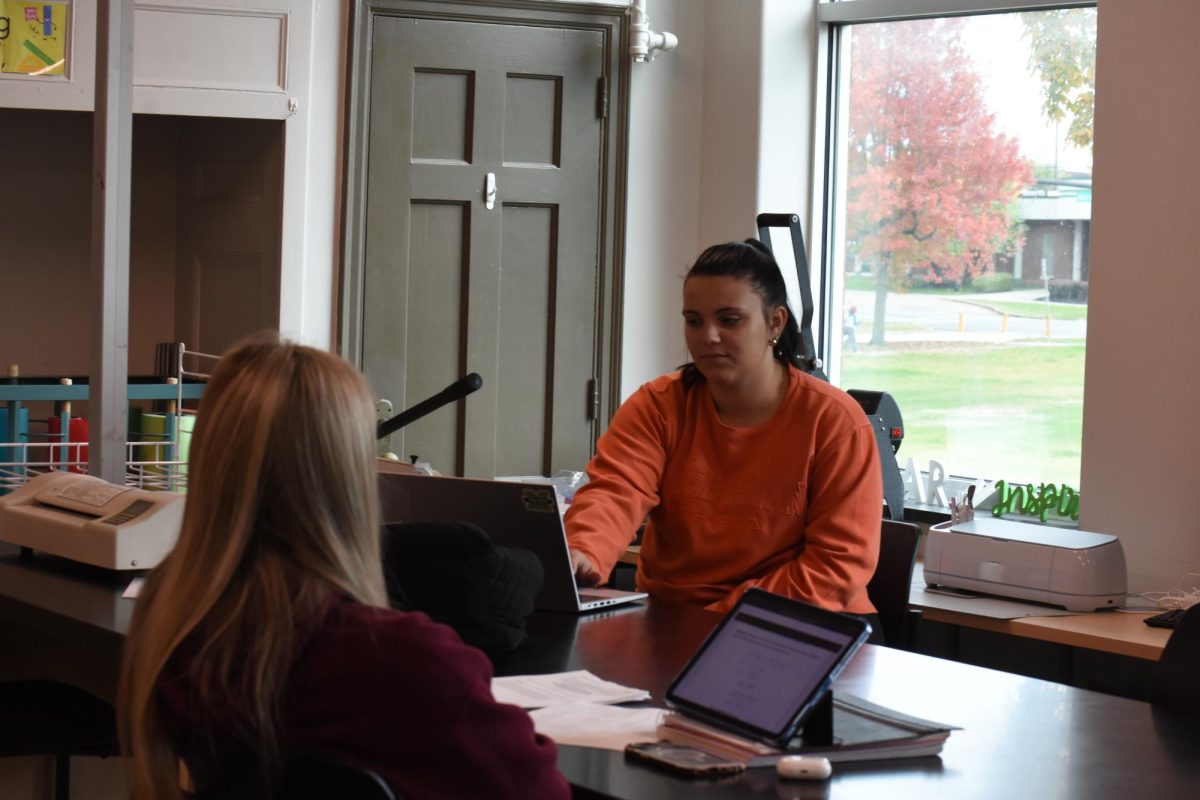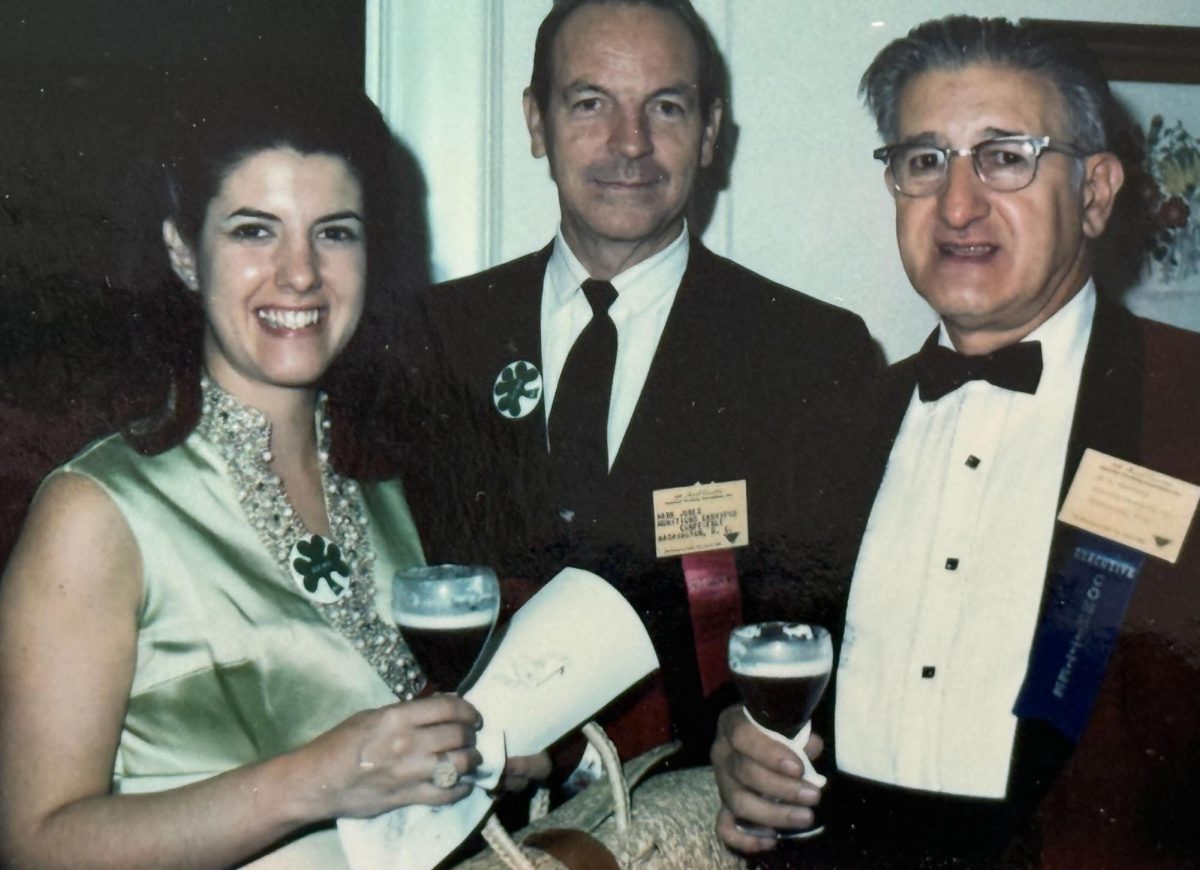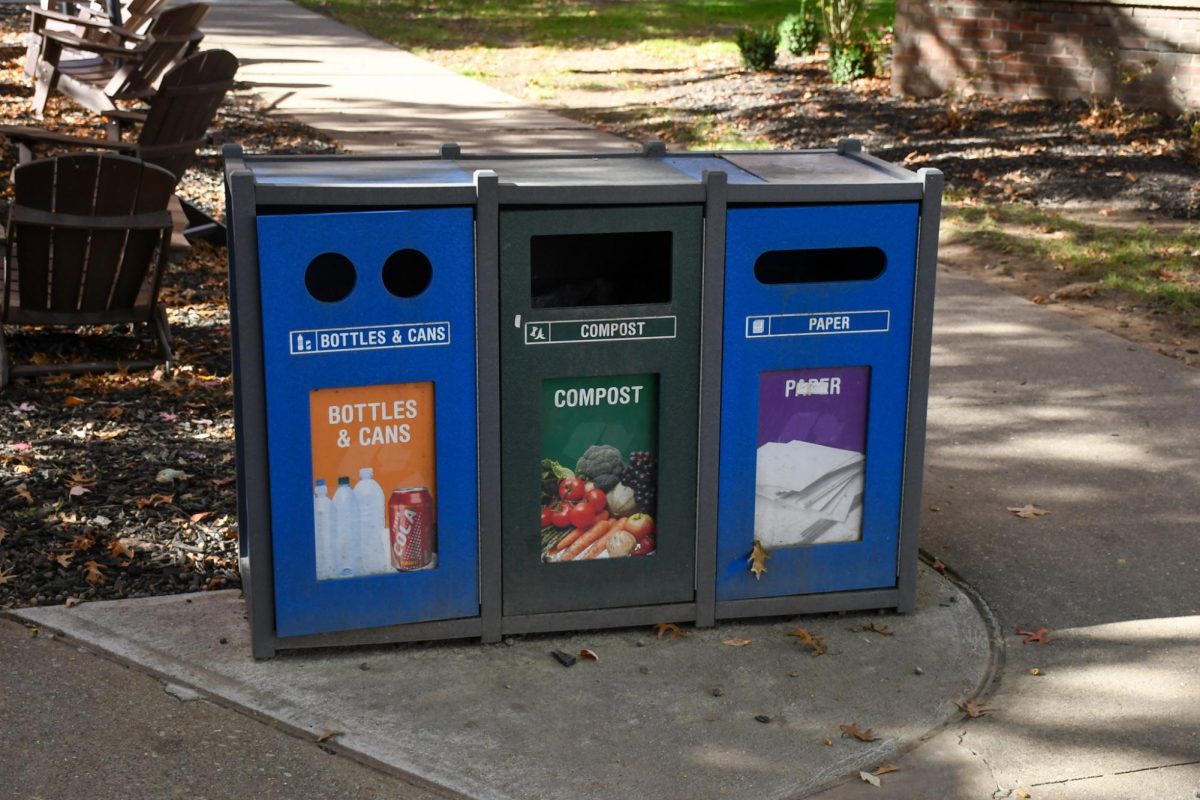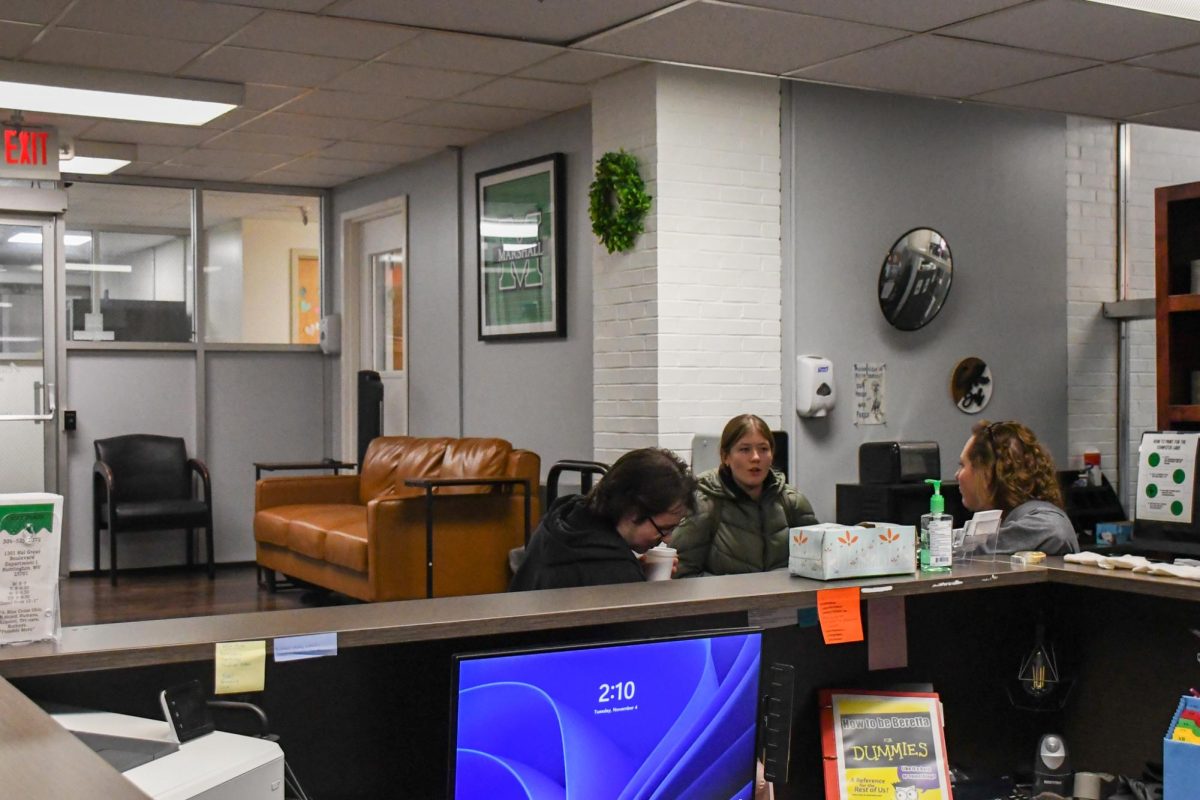It isn’t just about traffic safety, it’s about not becoming a statistic, the keynote speaker said at the Traffic Safety Summit.
The Huntington Regional Highway Safety program hosted youth motivational speaker Cara Filler to spread awareness about traffic safety Monday, April 21, at the Memorial Student Center.
“By no means am I on this road trip around the state in order to come and tell students in your state how to live their lives,” Filler said. “They already get enough nagging from their teachers and their parents; they don’t need to hear it from me. I just want them to get old like we did. That’s what I want.”
Filler has shared her story and her message about making choices to students and to anyone who would listen around the world.
Beau Evans, Huntington traffic safety director, said, “She is a compelling author, entrepreneur and speaker who has shared her moving presentation with more than two million students in five countries.”
Filler shared in her presentation about the death of her twin sister in a car crash. Filler said a crash happened because of the thought that something bad is never going to happen – a thought that is mistakenly wrong.
“It was no big deal to watch Mairin get in the car at 3:30 in the afternoon on a Monday because it’s never going to happen to us,” Filler said. “Mairin’s boyfriend sped by me a block from the mall; I thought it was a joke. I called him a loser out of the window and told him I would just meet them at home. I never met them.”
Mairin’s boyfriend had been going in excess of 100 miles an hour on a city street in Vancouver. Filler said at over 100 miles an hour, he locked up his brakes and slid 200 feet down the hill he was driving facing upwards before he crossed the median and slammed into an oncoming car.
“The point of impact was Mairin’s door handle,” Filler said. “The car bent at a 90-degree angle from where Mairin was sitting. What chance do you think my sister had? She was wearing her seatbelt. There were airbags in the car. At the end of the day, there’s only one thing that would save my sister’s life. Do you know it’s the same one thing that would save the lives of teens across this country every day of the year? It’s called a different choice.”
Filler said the reason she started speaking was because of her story, a story that becomes a number on a page – a statistic.
“Do you know the only thing that Mairin went on to accomplish with her life after graduating high school is? Being a number on a piece of paper. That is the last accomplishment any of us want to even have,” Filler said. “But you know, every one of those numbers is a story just like this with a family just like mine. I didn’t start speaking and want people to know my story. I wish I didn’t have a story. The reason I started speaking and all these years later – seriously, all these years later, I’m still speaking. I am sick and tired of car crashes being the number one killer of youth.”
Filler said nothing kills individuals under the age of 25 more than car crashes.
According to the National Highway Traffic Safety Administration, “Motor vehicle crashes were the leading cause of unintentional death in 2020 for the 15-to-24-year-old age group in the United States. In 2021, some 2,116 drivers 15-to-20 years old were killed, and an estimated 203,256 were injured in motor vehicle crashes.”
Filler said the reason she is on a road trip around West Virginia spreading her message is not about her story, but to raise awareness for the choices that teens have available to them.
“I wanna talk about the choices they can make. They already have enough people in their lives telling them what they shouldn’t do, can’t do, don’t do. I don’t do that,” Filler said. “I roll up and offer them a buffet of choices they didn’t even know they had.”
Filler said her sister’s choice was what cost her her life, and Mairin doesn’t live with the choice, she does. She said she hoped the message meant something to someone at the event because she’ll never know if it means anything.
“I’ll never know if this means anything to anybody. Statistics only show people that are injured or killed,” Filler said. “They don’t show any of us who make the right choice first as a passenger, as a driver, at a party. You don’t become a number on a piece of paper like Mairin did. ‘I’m sorry’ isn’t going to change that, but the choices you make for yourselves and your friends, especially those that are in high school, the way you inspire your friends to make good choices. It’s not about taking the risk out of the equation. It’s about learning to do things safely. That’s what it’s about.”
Filler said there are four choices people can make to do things more safely in their life. She said the choices are to not put yourself in that place of risk in the first place; get out of the car if you’re in a vehicle with someone who shouldn’t be driving; lie to be able to make sure they’re safe and pick up the phone and call someone.
Filler said after her sister’s death, once she finally got the courage to go back to school, she struggled in college. She was speaking out for her sister during the time she was enrolled, and she received her first “F” from a college professor that changed her life forever.
“He handed me back a test on a Monday morning with an ‘F’ on it. It was my first F ever,” Filler said. “I hadn’t studied. I barely been in class all semester, and he paused for just a second and said, ‘Cara, stop fighting fights you can’t win,’”
Filler said she was a basketball player in Canada at a national level, and she likes to win, but she realized life isn’t just about winning. She said it’s about the fights that are worth fighting for.
“It is more important in life you find a fight worth fighting for,” Filler said. “I don’t know what that fight’s gonna be for you all in your lifetimes, but I’m standing here today because I found mine. All of your lives today are worth fighting for to me because while I stood here, 90 people just died in cars. People I either met and will never see again or will never have the opportunity to meet.”
Filler will be continuing her tour through a couple West Virginia schools before returning to Portland, Oregon. She said she hopes at the end of day this event meant something to someone.
“If I say something tonight that can be empowering in a conversation with people that you love and care so much about or something that you can talk to your friends or your parents about, it’s about sticking your neck out for people,” Filler said. “This world right now needs a lot more of that, a lot more of that.”
Soleil Woolard can be contacted at woolard3@marshall.edu.








